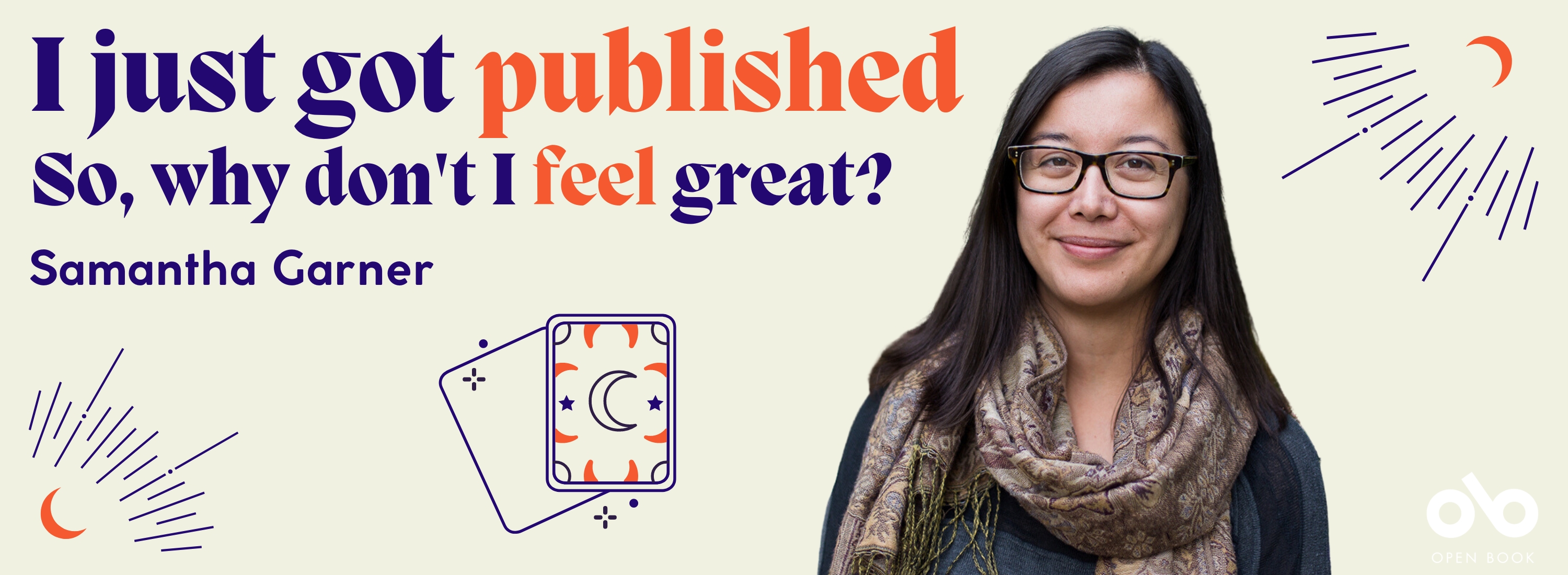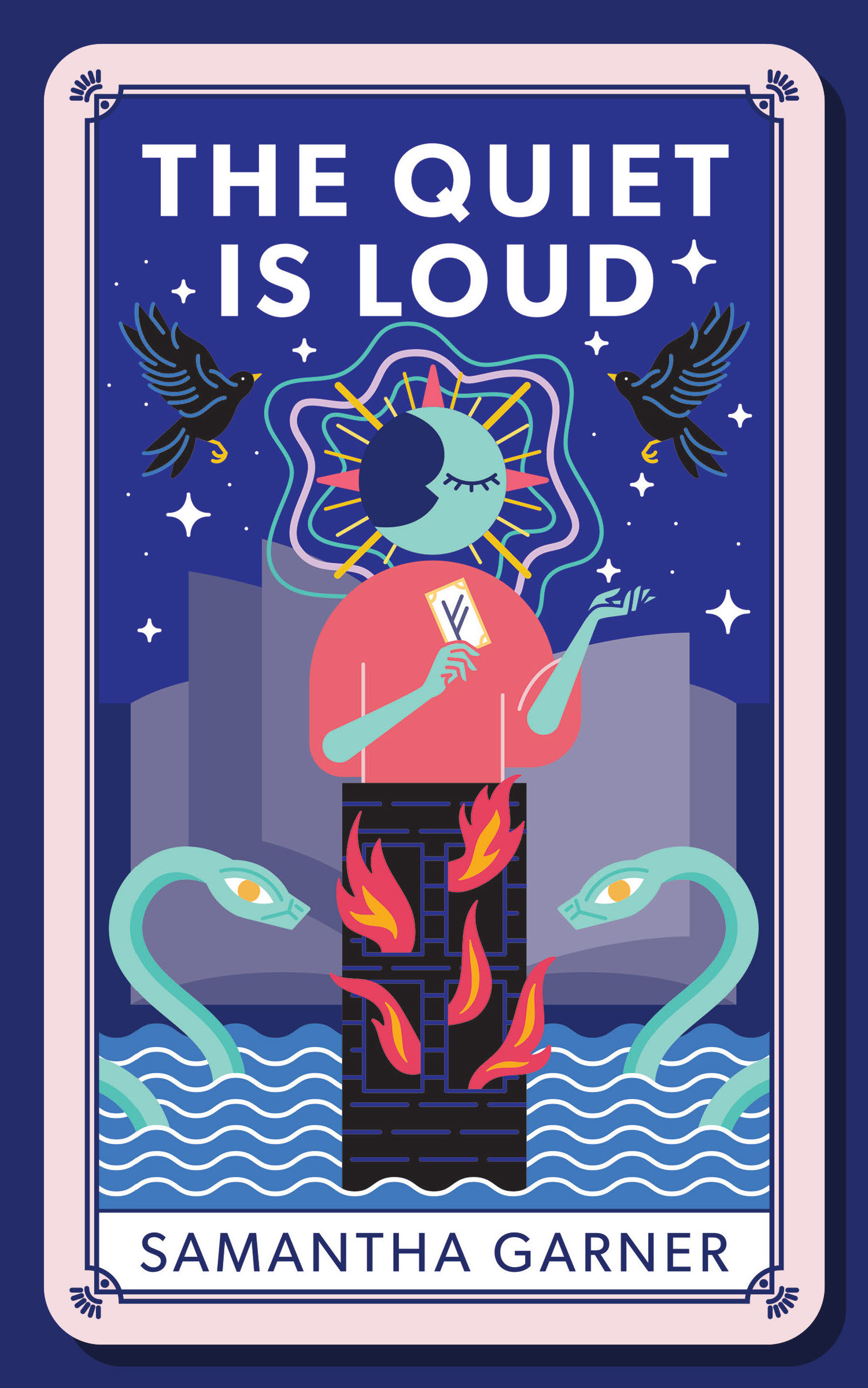I Just Got Published - So, Why Don't I Feel Great?
When I was 18, I resolved to be a published writer one day. It was something I’d dreamed of even before then. As a younger teenager I wrote simple books inspired in varying degrees by The Outsiders. As I got older I found joy in making zines and sharing creative writing on my early nineties websites. I moved from considering myself primarily a poet to what I thought would be my forever home in short stories, where I lived for many years. Yet, the novel was still unexplored territory to me, at least as an adult. I wanted to try again with all the experience and insight my post-Outsiders-ripoff writing had brought me.
In 2010, I wrote a novel during National Novel Writing Month. A practice novel. I even titled it Practice. I finished it and felt good about putting it behind me. I had done it. Satisfied, I returned to short stories.
But six years later, an idea for a novel-length project settled itself in my mind and wouldn’t leave. The Quiet is Loud was my first foray into speculative fiction. It’s set in our world, with one difference: there exists a scorned class of people with enhanced mental abilities like catatonia inducement, hyper-empathy, and prophetic dreams. It’s an exploration of identity and belonging, and I had a lot of fun writing the speculative elements.
It was the first thing I’d ever written that I wanted to keep working on after “THE END.” It was the book I finally wanted to publish.
I’m not one for hyperbole, so when I say that getting my book deal with Invisible Publishing was a dream come true, I mean it. I felt incredibly supported, understood, and valued by everyone there. Writing is solitary, so it was infinitely rewarding to see how much the Invisible team advocated for me and connected with my work. I loved everything about the process.
When The Quiet is Loud was published in 2021, I was 41. Twenty-three years had passed since I’d resolved to be a published author. Despite that, I hadn’t given too much thought to how my life would change once it happened. I knew that I’d have to promote my book on social media and do interviews. Thanks to my years of writing online, I felt confident about the former. Invisible’s lovely Publicity Coordinator guided me through the latter, answering my (many) questions and letting me know what to expect. I was prepared.
Publication day came. It was a blur of responding to congratulatory social media comments and DMs. As coincidence would have it, my first festival panel appearance happened to be on that day, too. I remember briefly zoning out during my introduction, expecting the host to stop and say, “I’m sorry, there’s been a mistake. A pretender has somehow slipped in.” That didn’t happen, of course, and it was a great experience.
The next day, however, was spent in a fog of social anxiety and self-doubt. Did I get out of bed? I honestly can’t remember. It took several days before the ground stabilized beneath me, and as I watched the congratulations and social media mentions roll in during that time, I wondered why I didn’t feel as excited as they did. What was wrong with me? Sure I felt pride, a sense of accomplishment, satisfaction, but no urge to jump up and down and scream with joy.
Since then, other writers have expressed to me similar feelings of post-launch burnout or wobbly mental health. They felt ungrateful because they couldn’t match the external excitement about their book, or they felt overwhelmed to the point that their mental health suffered. They felt that they’d somehow let down everyone who’d helped them on their journey to publication.
Your CanLit News
Subscribe to Open Book’s newsletter to get local book events, literary content, writing tips, and more in your inbox
If this sounds like you – or if you have a book coming out soon and want to prepare yourself for this eventuality – here are some tips that have helped me and other writers.
Make a plan for your mental health on publication week
I felt fully ready for pub day, until I realized I wasn’t. Whether or not you think you might have an overwhelming publication week, make some contingency plans. For example, plan to go for a long walk every day, spend time with family, or even take a day off from social media. Don’t read your reviews. Try to carve out some time when you don’t think about your book at all.
Don’t beat yourself up for having complex feelings
Your novel is the product of your heart and brain coming together to create something that’s incredibly meaningful to you. And then one day, after many years, it’s done. Even though a published novel can live a long life on its own, the process of creation is over. It’s sad! Let yourself mourn the loss.
Talk to people you trust
Whether it’s a writer friend or someone else you trust, talking about your feelings can help. It may seem like a no-brainer, but many writers worry about being negatively judged if they talk about it widely. If you don’t feel like you can talk with anyone you know or you’re having trouble coping, you may find it helpful to speak with a mental health professional if it’s available to you.
Start something new
For many writers, a novel is one step in a broader career. If you feel you can, try starting a new project. If writing isn’t possible, try some other creative pursuit like photography, music, or drawing. Keeping your brain distracted and creative is a win-win!
Even the most prepared writers can be thrown for a loop after publication, but it happens more often than you might think. If you don’t feel like jumping for joy after being published, it doesn’t mean you’re not grateful, or that you don’t deserve accolades. Excitement isn’t the only option, after all. Pride, a sense of accomplishment, and contentment are all valid feelings too – and the ones that will sustain you through your writing career.
To read more of Samantha's work, check out her wondrous stint as Writer-In-Residence for Open Book from June 2021, as well as this Book Therapy column by Stacey May Fowles, celebrating THE QUIET IS LOUD!
Samantha Garner is the author of The Quiet is Loud, shortlisted for the 2022 Kobo Emerging Writer Prize. A Canadian of mixed Filipino-Finnish background, her character-driven fantasy novels explore themes of identity and belonging. When not writing, Samantha can be found daydreaming in a video game or boring a loved one with the latest historical fact she’s learned.
She can be found online at samanthagarner.ca and on Instagram and Twitter at @samanthakgarner.





